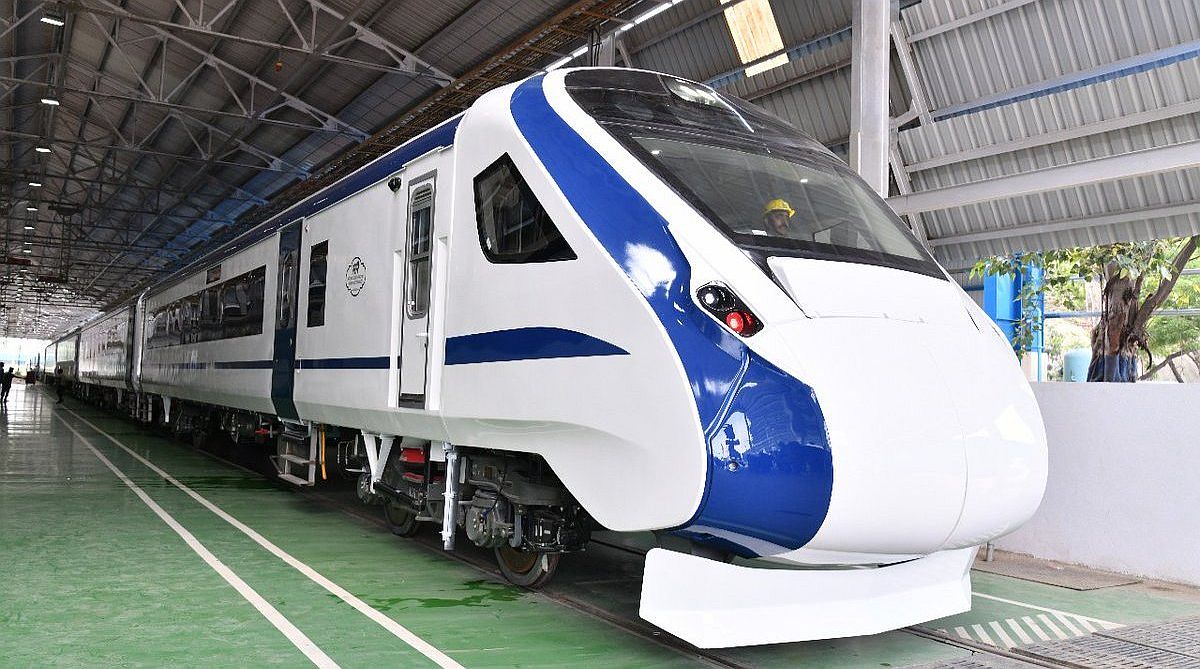The indigenously-manufactured Train 18 will now be known as Vande Bharat Express, Railway Minister Piyush Goyal announced on Sunday.
Goyal, who took charge of the Ministry in September 2017, commended the engineers who built the entire train in a record time of 18 months.
Advertisement
“It’s a train built completely in India by Indian engineers, in a span of 18 months,” Goyal said, adding, “It’ll ply from Delhi to Varanasi.”
“The train is an example that it’s possible to make world-class trains under Make in India,” the Minister underlined.
Prime Minister Narendra Modi will flag off the train soon.
Vande Bharat Express will run at a maximum speed of 160 kmph. On 27 December last year, Goyal had shared a video showing the train running at a speed of 180 kmph. The train can run at a maximum speed of 200 kmph but it would require upgraded tracks and signals.
Designed and constructed by Integral Coach Factory (ICF), the train was flagged off by Railway Board Chairman Ashwani Lohani on 29 October.
Besides the speed, Vande Bharat Express has an advanced array of features including energy-efficient coaches, which leaves less carbon footprint. Every alternate coach is motorised to ensure even distribution of power in the train.
The train has driver coaches at both ends – like metro and local trains across the country.
Passenger comfort has been given detailed attention. Features include CCTVs, onboard Wi-Fi and infotainment, rotational seats, modular and disabled-friendly toilets with bio-vacuum systems, automatic doors with retractable footsteps among other features.
Vande Bharat Express will have 16 coaches and the same number of seats as in a Shatabdi Express, which it will replace.
Each train will have two executive compartments of 52 seats each. The rest of the coaches will have 78 seats each bringing the total seating capacity to 1,128.
Reports say that fares are likely to be around 40-50 per cent higher than the Shatabdi Express, which means that Executive Class fare would be between Rs 2,800 and Rs 2,900 while that of the Chair Car would be between Rs 1,600 and 1,700.









